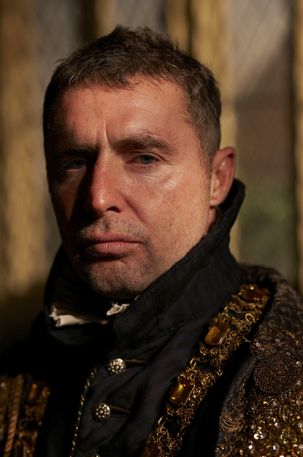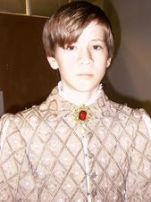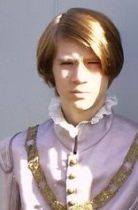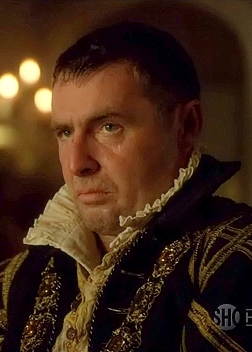Henry Howard, Earl of Surrey
Jump to navigation
Jump to search
Henry Howard, Earl of Surrey as played by David O'Hara in Season 4
| born c. 1516/18 - died 19 January, 1547 executed by order of King Henry VIII Character's backstory: The son of Thomas Howard, 3rd Duke of Norfolk, Henry was brought up with Henry VIII's illegitimate son Henry Fitzroy. He was given the title "Earl of Surrey" by courtesy in 1524 on the passing away of his grandfather, when his father Thomas Howard was created 3rd Duke of Norfolk. He accompanied his first cousin Anne Boleyn, the King, and Henry Fitzroy to France, staying there for over a year as a member of the entourage of Francis I. From 1530 until 1532 he lived at Windsor with his father’s ward, Henry Fitzroy, Duke of Richmond. In 1532, after talk of marriage with the princess Mary Tudor, he married Lady Frances de Vere, the 14-year-old daughter of the Earl of Oxford, but they did not live together until 1535. Despite this marriage, an alliance between him and the princess Mary was still discussed. In 1533 Richmond married Surrey’s sister Mary, but the two did not live together because Mary preferred to stay in the country. Surrey served with his father against the Pilgrimage of the Grace in 1536 and was known as a mighty soldier. The Howard Faction were in opposition to the Seymour Faction so when Jane Seymour became queen there was some scheming and he was accused of sympathizing with the Pilgrimage of the Grace even being imprisoned on suspicion. However, the accusations were patently false since he had been involved in putting down the rebellion. By 1541, he was back in favour and had been made a Knight of the Garter. Henry served the king in the war with Scotland and in 1543 he fought in Flanders with the English army on the side of Charles V. The following year he was wounded at the siege of Montreuil; in 1545-1546. In 1546, he made the mistake of announcing his opinion of the obviousness of his father's becoming Protector to young Prince Edward. The Seymours finally had their day, when Surrey ill-advisedly displayed royal quarterings on his shield. Arrested along with his father on charges of treason, they were imprisoned in the Tower, condemned and executed on January 19, 1547 on Tower Hill. His father was luckier since King Henry died the day he was supposed to be executed and the execution was stayed. Gentility: from a Noble Family Position: Royal cupbearer in 1526 (aged approx 10), knighted in 1536 At the trial of his kinswoman, Anne Boleyn, in 1536, he was present as the representative of the Earl Marshal, his father having presided by virtue of his office of Lord Treasurer. In July 1544 Henry invaded France with a large army, the vanguard of which was commanded by the Duke of Norfolk, and Surrey was appointed Marshal, an office of considerable importance. Personality type: For The Tudors, has been described as "arrogant but sensitive". In history he was known for his irascibility and continuous vaunting of his descent from Edward I which resulted in his imprisonment on several occasions. "The life and death of the Earl of Surrey remain complex subjects, for Surrey was a conundrum to his contemporaries, let alone his biographers. His fall was a dramatic one, for Surrey had been a privileged member of Henry's court, raised as the companion of the king's much beloved son the Duke of Richmond [[[Henry Fitzroy]]] invested with the Order of the Garter, cousin to two queens and an important military commander. He was known for his arrogance, painfully conscious of his high birth and angry and melancholic by turns at the proliferation in government of men of lowly birth. He was a very great poet, writing poetry which hints at his loathing for the politics of Henry's reign, but tells us nothing directly." ~ Lucy Wooding "Henry VIII" Signature look: Endearing trait(s): He introduced blank verse to English in translating two books of Vergil's Aeneid. Along with his friend Sir Thomas Wyatt, he popularized the Petrarchan sonnet form in English. He was the only poet mentioned on the title page of the well-known miscellany (1557) of printer, Richard Tottel. Annoying trait(s): His pride of ancestry and his foolhardiness in the dangerous days at the close of Henry VIII's reign left him open to the intrigues of those who plotted for the court supremacy which would come after the King's death.
Click EasyEdit to update this page! (Don't see the EasyEdit button above? <a href="/#signin" target="_self">Sign in</a> or <a href="/accountnew" target="_self">Sign up</a>.) |
...the quiet mind; The equal friend; no grudge, no strife; ...wisdom joined with simplicity; The night discharged of all care" ~ Henry Howard ~ As proud Windsor, where I in lust and joy, With a Kinges son, my childish years did pass... ~ Henry Howard, Earl of Surrey
| |||
CHARACTER CONNECTIONSFamily members: Father: Thomas Howard, 3rd Duke of Norfolk Mother: Elizabeth Stafford - daughter of Edward Stafford, 3rd Duke of Buckingham and Lady Eleanor Percy Brother: Sir Thomas Howard, 1st Viscount of Bindon Sister: Lady Mary Howard (future wife of Henry Fitzroy) Sister: Lady Katherine Howard, Countess of Derby (d.1530) Step-mother [if Henry had been alive during her marriage to his father]: Anne of York, daughter of King Edward IV and Elizabeth Woodville (sister of Elizabeth of York, King Henry VIII's mother). Half-Brother: Lord Thomas Howard (c. 1496 - 1508) Aunt: Lady Elizabeth Howard (Mother of Anne Boleyn) Uncle: Lord Edmund Howard (Father of Katherine Howard) 1st Cousin: Anne Boleyn, George Boleyn, Mary Boleyn 1st Cousin: Katherine Howard *In the series he is inaccurately depicted as Katherine's uncle. 1st Cousin Once Removed: Princess Elizabeth Tudor Marriage: Lady Frances De Vere; daughter of Sir John De Vere, 15th Earl of Oxford and Lady Elizabeth Trussell (married in early 1532) Children: - Thomas Howard, 4th Duke of Norfolk (1536 - executed 1572); married (1) Mary FitzAlan (2) Margaret Audley - Jane Howard, Countess of Westmoreland (1537 - 1593); married Charles Neville, 6th Earl of Westmoreland - Henry Howard, 1st Earl of Northampton (1540–1614) - Margaret Howard, Baroness Scrope of Bolton (1542–1592); married Henry Scrope, 9th Baron Scrope of Bolton - Catherine Howard. Baroness Berkeley (c. 1544 - 1596); married Henry Berkeley, 7th Baron Berkeley Thomas Seymour | Friends: Henry Fitzroy - they grew up and were educated together. ["With a Kinges son, my childish years did pass,] *In the series the character of Fitzroy dies at a young age but did in fact live till after Anne Boleyn's demise, when he was 17 years old & had married Henry Howard's sister Mary. William Parr - grew up with Henry Fitzroy and Henry Howard; brother of Queen Catherine Parr and Anne Parr. Thomas Wyatt - although he was about 15 years older. Thomas, the Younger Wyatt Enemies: Edward Seymour Thomas Seymour
|
UNFORGETTABLE CHARACTER QUOTES
|
DEFINING EPISODES | MEMORABLE SCENES
| |
| <embed flashvars="transition=Fade&site=http://www.thetudorswiki.com&imageServer=http://image.wikifoundry.com&albumId=167041" height="400" src="http://widget.wetpaintserv.us/wiki/thetudorswiki/widget/unknown/d5aacb14d5b964abc36b681a800758945458da4e" type="application/x-shockwave-flash" width="400" wmode="transparent"/> |
PHOTOS
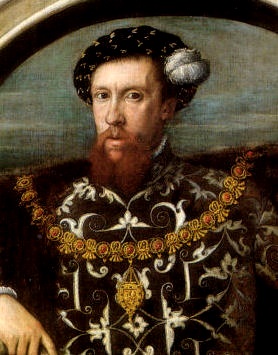 | |
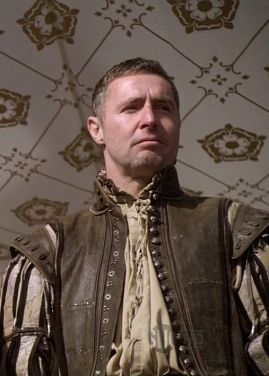 | 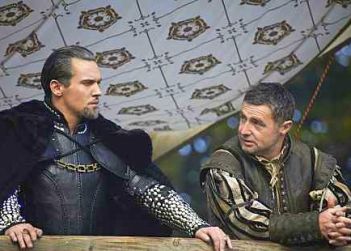 |
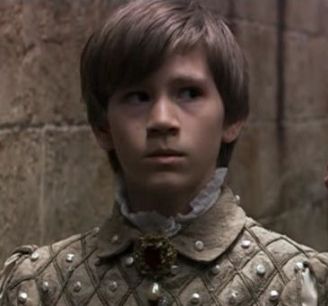 Season 1 Owen Day-Jones | 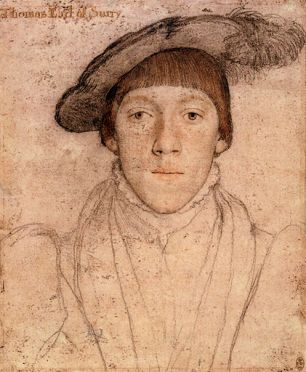 Henry Howard, Earl of Surrey (c.1533 aged approx. 16) The drawing was originally incorrectly identified as "Thomas" as many drawings were. |
| <embed allowfullscreen="true" height="269" src="http://widget.wetpaintserv.us/wiki/thetudorswiki/widget/youtubevideo/74257ad0f26798894b6e5c69810fdcc0a5c87f68" type="application/x-shockwave-flash" width="339" wmode="transparent"/> | <embed height="300" src="http://widget.wetpaintserv.us/wiki/thetudorswiki/widget/genericvideo/41efd6c63138de03689f67eefb18202e42d767bf" type="application/x-shockwave-flash" width="300" wmode="transparent"/> |
For more pics see : Photo Gallery
